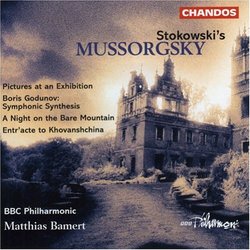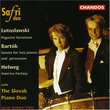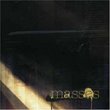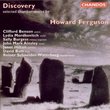| All Artists: Modest Mussorgsky, Leopold Stokowski, Matthias Bamert, BBC Philharmonic Orchestra Title: Stokowski's Mussorgsky Members Wishing: 0 Total Copies: 0 Label: Chandos Release Date: 6/18/1996 Genre: Classical Styles: Opera & Classical Vocal, Chamber Music, Forms & Genres, Theatrical, Incidental & Program Music, Historical Periods, Classical (c.1770-1830), Modern, 20th, & 21st Century Number of Discs: 1 SwapaCD Credits: 1 UPC: 095115944523 |
Search - Modest Mussorgsky, Leopold Stokowski, Matthias Bamert :: Stokowski's Mussorgsky
 | Modest Mussorgsky, Leopold Stokowski, Matthias Bamert Stokowski's Mussorgsky Genre: Classical
|
Larger Image |
CD DetailsSimilar CDs
|
CD ReviewsColorful, Dramatic, Grandiose Mussorgsky Timothy Dougal | Madison, Wi United States | 08/03/2004 (5 out of 5 stars) "This disc of Stokowski transcriptions of Mussorgsky's music contains the same pieces as the recently released disc on DG by Oliver Knussen, but for me anyway, this is the better album. First, the program is more satisfyingly arranged, being nearly the reverse of the Knussen disc. It kicks off with 'Night on the Bare Mountain', segues into the 'Boris Godunov Symphonic Synthesis', then the 'Khovanschina Prelude', and finishes with the magnificent 'Pictures at an Exhibition'. The sound on this Chandos disc is quite a bit more resonant, spacious and lush than the DG/Cleveland disc, and Bamert's conducting is more broad and less mannered than Knussen's, coming in a 69 minutes as opposed to Knussen's 65. The BBC orchestra plays spectacularly and sensitively. If you're unfamiliar with the Stokowski experience, this disc will give a good place to start. It's almost unbelievable how wonderfully Stokowski realized Mussorgky's musical ideas onto a monumental orchestral canvas. Check it out!" An Exciting Disc D. A Wend | Buffalo Grove, IL USA | 12/13/2004 (5 out of 5 stars) "This recording showcases some of conductor Leopold Stokowski's best orchestrations. Night On Bald Mountain was orchestrated for the film Fantasia and is a synthesis of Mussorgsky's original version and that of Rimsky Korsakov. The music in Stokowski's hands maintains the more ghostly elements of the original version. The Boris Godunov: Symphonic Synthesis uses all of the more familiar music from the opera, particularly the Coronation Scene. Stokowski used Mussorgsky's first version for his synthesis and follows the action from the crowd scene at the start of the opera to the death of Boris in sequential order. The scoring of the Entr'acte to act four of Khovanshcina is interesting for the tolling bells that nicely describe Prince Galitsin being sent into exile. The most interesting piece on this disc, for me, is the orchestration of Pictures at an Exhibition. All too often, only the Ravel orchestration is heard, which is a pity since so many composers have taken on the task but so little of their work has been heard. Those familiar with Ravel's orchestration will find this one refreshing. The Great Gate of Kiev is less opulent than Ravel's. Stokowski still provides a big sound but there is more clarity to the music. The Old Castle is scored for an English horn instead of Ravel's saxophone, an instrument that allows the melody to float along dreamily than the saxophone. Stokowski eliminated the Tuileries and Limoges sections of the piano score doubting that they were by Mussorgsky since they were not in the manuscript. As one would expect, and hope, the scoring of Gnomus and Baba Yaga are suitably grotesque. Although I greatly like the Ravel orchestration I would have to agree that it is often un-Russian in sound and Stokowski was able to get something closer to the spirit of the original. The music is well-played by the BBC Philharmonic under Matthias Bamert (a Stokowski protégé) and is nicely recorded by Chandos. I highly recommend this disc, particularly for anyone interested in Russian music. " Probably the best recording of "Night on Bald Mountain," int Uluru II | United States | 11/10/2009 (5 out of 5 stars) "I've only seriously listened to "Night on Bald Mountain" and "Pictures" on this disc, so I won't comment on the other works. But those two are outstanding.
"Night On Bald Mountain" is usually heard in the form arranged by Rimsky-Korsakov. There are some exciting recordings of that version out there, but most miss the mark. Rimsky-Korsakov is known for his colorful, pristine orchestrations (he taught Stravinsky orchestration) - as a consequence many conductors work too hard to present a delicate palette of colors in this piece, and it comes across a bit like a refined late-Romantic work, similar to Brahms in a really dark mood. Even with the Rimsky-Korsakov version, this is not the correct approach. This piece was meant to be unsettling, vulgar and frightening, which is especially apparent in Mussorgsky's own early version, with its male chorus evoking images of a Satanic ritual. Because of this I view Stokowski's orchestration as the definitive version of the piece, while not discounting the many merits of Rimsky-Korsakov's. Stokowski fleshes out the effects that Rimsky only hinted at. Instead of polite, symphonic glissandos in the violins, Stokowski gives us chillingly wispy string effects that sound like a ghost's sigh. Muted brass give vulgar, mocking tones. The central low-brass fanfare is beefed-up compared to Rimsky's version, and Bamert and the BBC Orchestra pull out all the stops - it's a terrifying bellow from the trombones, as if hell is erupting from the earth. Slower interludes are slinky and sensual, while the coda is mournful and finally angelic as peace is restored. The famous sequence from Disney's "Fantasia" used Stokowski's orchestration (as you'd expect, since he conducted the score) and his version easily conjures up images of dark mountain gods, demons and ghosts away from the film. This performance by Bamert and the BBC is wonderfully committed, not afraid to get obscene or sensual as appropriate, and consistently sends chills up my spine. Any fan of this work NEEDS to hear this recording. Stokowski's "Pictures" is less essential, if only because Ravel's orchestration sounds so right and inevitable that it's hard to imagine anything better. Stokowski uses varied orchestration to achieve more obvious effects, as he does with "Bald Mountain," but unlike that piece "Pictures" does not mandate such efforts. As a result it's sometimes a little indulgent and larger-than-life; if Disney had made an animated Fantasia sequence out of "Pictures," Stokowski's version probably would have fit that medium better than Ravel's. That's the impression I get - Stokowski had a colorful narrative for the piece in his head that Ravel's stately concert-piece did not quite evoke. For those with Ravel permanently ingrained in their minds, this may seem like a mere curiosity and reinforce the brilliance of the most popular arrangement. That being said, as wonderful as Ravel's version is, it has perhaps unfairly overshadowed some other unique, legitimate efforts such as Stokowski's. In that sense this is essential listening for any collector of "Pictures at an Exhibition." Again, Bamert and the BBC give a solid, committed performance that aptly illustrates Stokowski's vision - the best recording I've heard of his arrangement. As a final note, the recording quality is excellent, as is usual for Chandos. This might not be an essential CD for a general classical library, but for any admirer of "Night on Bald Mountain" who wants to hear what it should REALLY sound like, or the curious "Pictures" listener, you won't regret picking this up." |

 Track Listings (20) - Disc #1
Track Listings (20) - Disc #1



